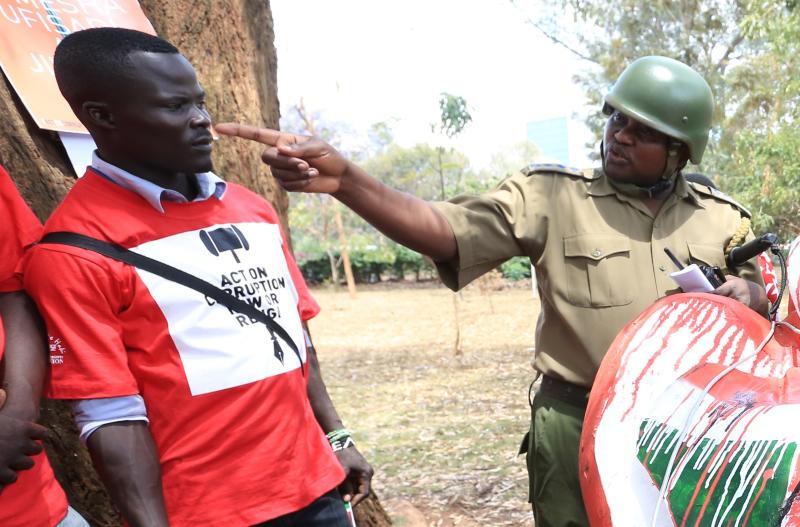×
The Standard e-Paper
Join Thousands Daily

A policeman points menacingly at a civil society activist during a past protest against runaway corruption in Nairobi. [File]
Younger Kenyans deserve a reminder about what we looked like in early 2003. The National Rainbow Coalition (Narc) had won the election in decisive fashion all the way from the presidency to Parliament. A Gallup poll rated us as the most optimistic people in the world.